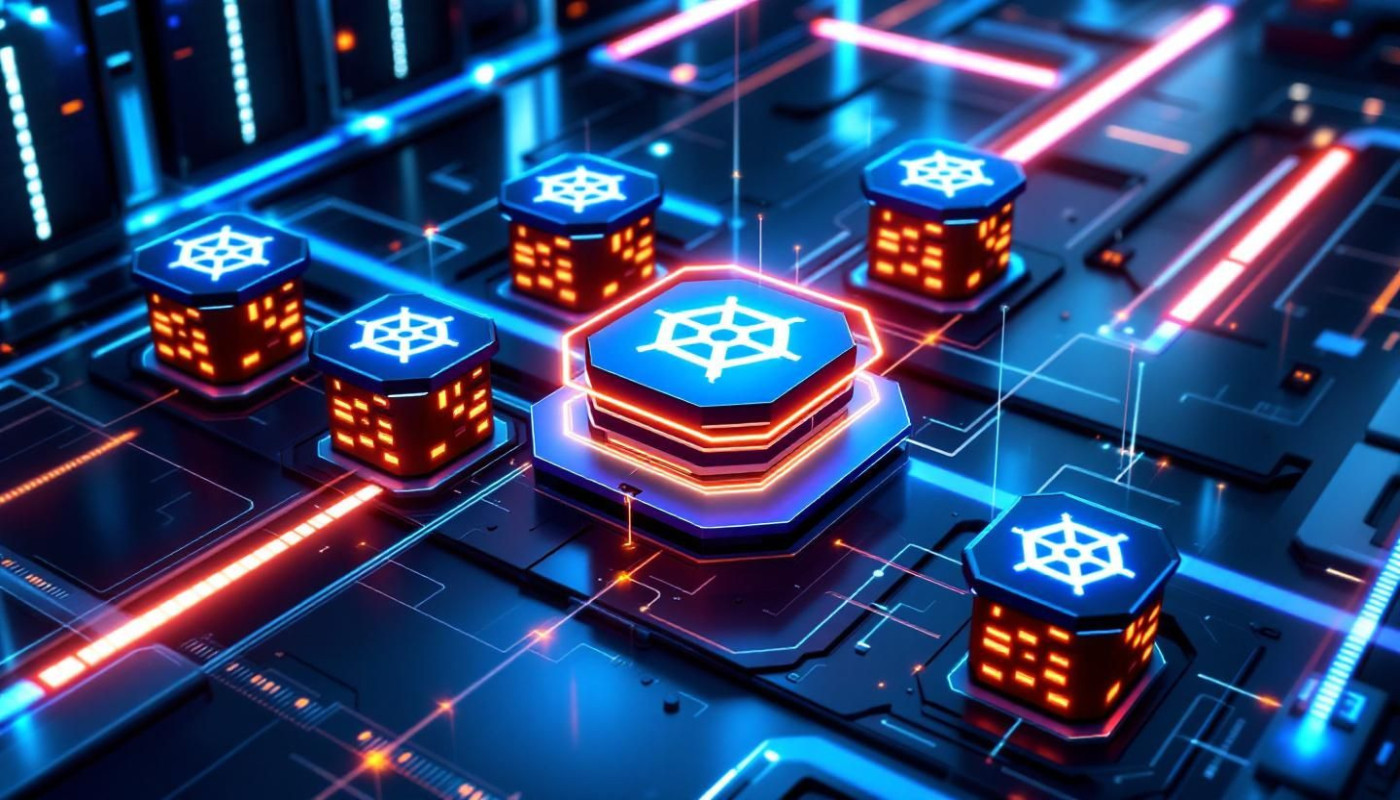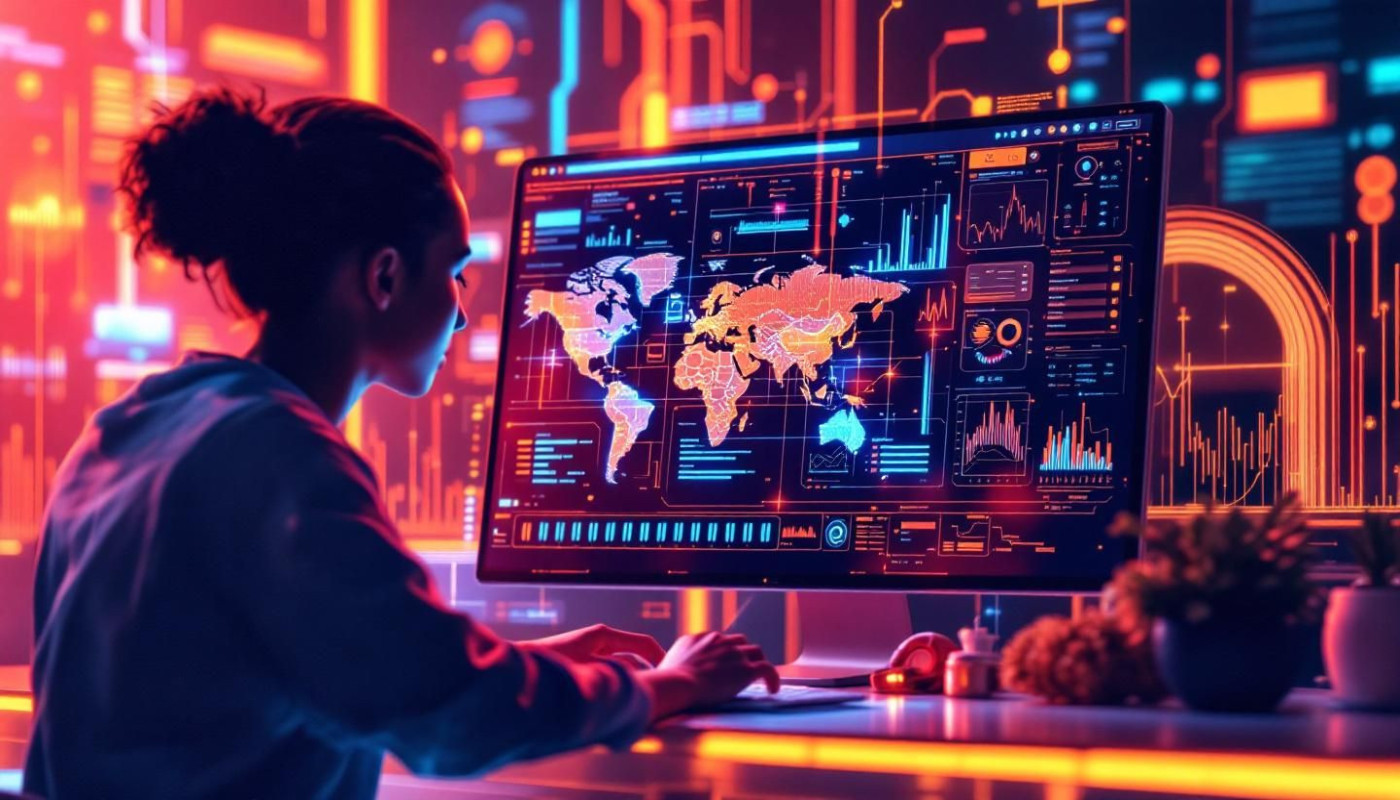Table of contents
Artificial Intelligence (AI) is indisputably transforming the landscape of modern software, revolutionizing how systems operate and interact. It's a buzzword that has rapidly gained prominence across various industries, redefining the way we think about and approach computing. In the realm of software development, AI's influence is pervasive and profound, with its footprint evident in everything from predictive algorithms to advanced automation. This article aims to delve into the intricate relationship between AI and modern software, exploring how the former is shaping the latter's evolution. Join us as we unravel the fundamental concepts, key developments, and potential future trends in this exciting intersection of technology. Let's examine AI's role in software development, its influence on coding and testing, and its notable contributions to user experience and cybersecurity.
AI’s Role in Software Development
In the realm of software development, AI algorithms are becoming increasingly prevalent due to their ability to learn and adapt over time. Machine Learning, a key branch of AI, allows these algorithms to learn from past data and experiences, and incrementally enhance their performance. This ongoing learning capability of AI significantly improves efficiency in the software development process, streamlining tasks and minimizing repetitive human efforts.
Error reduction is another noteworthy benefit of integrating AI in software development. AI algorithms, armed with their learning abilities, can predict and prevent potential issues before they occur, thereby reducing the frequency of errors. This proactive approach to problem-solving not only conserves resources but also saves significant development time.
These findings are not just assumptions but have been validated by numerous research articles on AI in software development. AI's role in software development is indeed transformative and continues to evolve, offering promising prospects for the future.
Influence of AI on Coding and Testing
The revolution of AI in coding and testing has brought profound changes in the world of software development. Automated testing, a technical term often associated with this transformation, is becoming commonplace. AI has the capability to automate these processes, which leads to a significant workload reduction for developers.
With less time spent on manual testing, developers can focus more on other critical aspects of the software development process. Furthermore, the incorporation of AI in coding has led to increased accuracy, as the chances of human error are greatly reduced. Automated testing, driven by AI, can catch issues and bugs that might be overlooked by a human tester, enhancing the software debugging process.
According to credible reports on AI's influence on coding and testing, this trend is only set to grow in the future. The power of AI to transform coding and testing is undeniable, and those in the software development industry can only expect these benefits to multiply over time.
AI’s Contributions to User Experience
The impact of Artificial Intelligence (AI) on the user experience in software applications can hardly be overstated. AI has transformed the way software interacts with users, offering a more tailored, intuitive, and efficient experience. A standout aspect of AI's influence lies in creating personalized experiences. AI algorithms analyze user data and preferences to provide custom-made services, enhancing satisfaction and engagement levels. This function of AI in user experience not only enhances the user's interaction with the software but also fosters a deeper connection with the product.
In addition to personalization, AI plays a significant role in user behavior prediction. By leveraging machine learning algorithms, AI can anticipate user actions, preferences, and even potential complications. This predictive ability enables seamless user experiences, proactive problem resolution, and ultimately leads to improved user retention rates.
Furthermore, AI's influence extends to user interface design. AI-driven User Interface (UI) design tools can generate design suggestions, analyze user feedback and even automate some design tasks, driving efficiency and effectiveness in UI development. According to various studies on AI's impact on user experience, AI's role in enhancing UI design has led to significant improvements in user satisfaction and overall software usability.
In summary, the infusion of AI in user experience, user behavior prediction, and UI design is reshaping software applications, making them more responsive, personalized, and intuitive. The future of AI in enhancing software user experience promises even more exciting advancements.
AI in Enhancing Software Security
Artificial Intelligence (AI) is playing an increasingly pivotal role in augmenting the field of software security. Notably, the integration of AI in software security has become a revolutionary approach to securing software environments. AI algorithms, with their predictive abilities, are enabling the security systems to detect and predict security patterns and potential threats. This aspect of AI, known as Threat Detection, has significantly contributed to a more robust and secure software environment.
These sophisticated algorithms meticulously analyze the data, identify unusual patterns, and forecast potential security issues. This predictive approach allows for an early intervention, thus, reducing the risk of potential security breaches substantially. What's more, AI's involvement in software security is facilitating the automatic correction of coding errors and vulnerabilities, thereby enhancing overall software safety.
Various research papers on AI's role in software security provide substantial evidence of the effectiveness of AI in enhancing security measures. Through their exhaustive studies and findings, they underline the transformative impact of AI on software security, demonstrating its potential to reshape the future of the digital world.
Future Trends at the Intersection of AI and Software
The evolution of artificial intelligence (AI) is poised to bring about a paradigm shift in the realm of software development. The future of AI is anticipated to hold immense transformative potential, with industry forecasts highlighting the increasing influence of AI in shaping software trends. AI's predictive analysis capabilities are expected to have a substantial impact on both the process and product of software development, disrupting traditional paradigms and paving the way for innovative trends.
The application of AI in predictive analysis could fundamentally enhance the speed, efficiency, and accuracy of software development. By leveraging advanced algorithms and machine learning, AI can analyze vast datasets to predict potential issues and streamline the development process. This effectively reduces the time and resources spent on manual coding and debugging, thereby revolutionizing software development strategies.
Moreover, the AI influence extends beyond the development phase, transforming user experiences as well. With its ability to learn and adapt, AI-enabled software can provide more personalized, intuitive solutions, revolutionizing the user-software interaction. As such, the future of AI in software development signals an era of enhanced productivity, precision, and personalization.
Although AI's influence on software development is still evolving, its potential is undeniable. As the industry continues to explore and harness this potential, AI is undeniably setting new benchmarks for the future of software development.
On the same subject

How Effective Are Hybrid Strategies In Kubernetes Upgrades?

How Custom Software Development Is Driving Innovation In Healthcare

Exploring Ethical Considerations In The Deployment Of AI-driven Chatbots

Exploring The Efficiency Of AI In Streamlining Logo Design Processes

How Generative AI Is Transforming Customer Service Efficiency

How To Enhance Your Website's Performance With Specialized SEO Tools

Exploring Alternative Digital Payment Solutions For Charitable Organizations

How AI Is Transforming Urban Development With Generative Design

The Impact Of AI On 3D Modelling: Changing The Landscape Of Computer-Assisted Design

Comparing Traditional Graphic Design Software With AI Image Generation

